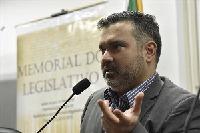Blog
Unless otherwise stated, content is shared under CC-BY-NC Licence
The benefits and drawbacks of DIY digital preservation
Amy Rudersdorf is a Senior Consultant with AVP.
Introduction
2020 hasn’t been the year most of us expected. At the top of all the stuff that this year has thrown our way is the global pandemic. For some organizations it has also meant reductions in resources and staffing. This has left many cash-strapped organizations with tighter budgets than ever before, even as the costs of technology and human resources continue to rise. At the same time, many organizations are struggling to get a handle on the mountains of digitized and born-digital content in their collections to ensure it is safe now, and managed over time to ensure it is accessible and renderable into the future.
So what’s a digital preservationist do when it comes to selecting technology for their program? Is it cheaper, better, and faster to build from scratch or buy an out-of-the-box (OOTB) solution? This post describes the benefits and drawbacks of do-it-yourself (“DIY”) digital preservation that may help decide in which direction to go.
Recent Developments at the Library of Congress: File Format Policies and Web Archiving Anniversary
Authors – all from the Library of Congress: Kate Murray (Digital Projects Coordinator), Trevor Owens (Head, Digital Content Management Section), Marcus Nappier (Digital Collections Specialist), Ted Westervelt (Chief, US/Anglo Division) and Abbie Grotke (Assistant Head, Digital Content Management Section & Web Archiving Program)
The Library of Congress relies on a network of policy documents, good practice and specifications that govern the Library's digital collection management program compiled in the publicly available Digital Collections Management Compendium (DCMC). The Compendium brings together the business guidance from across the Library’s many departments related to digital formats, inventory and custody and finally, access. In October of 2019, the Library of Congress launched a public version of the DCMC, which presents digital collection management policies in three main areas: digital formats, inventory and custody, and access. The section for digital formats includes a summary of how the Library’s Recommended Formats Statement can be applied, as well as overarching statements about how we manage various digital preservation issues for digital formats, including the preservation of content “as received” over time, the creation of digital surrogates, and inventorying of format types. As such, the ongoing maintenance and development of the RFS is critical to the Library’s overall digital collection management policy and practice.
A Framework Enabling the Preservation of Government Electronic Records
Leslie Johnston is the Director of Digital Preservation and Elizabeth England is a Digital Preservation Specialist at the U.S. National Archives and Records Administration.
NARA supports digital preservation in a comprehensive manner, including guidance for record creators and record transfers, tools for processing archivists, services for copying records from legacy media, preservation strategy and file format plans, and the cloud based ERA 2.0 processing and preservation repository. Most recently, a NARA cross-agency team developed an extensible Digital Preservation Framework, which was publicly released in 2020 for adaptation and use across the digital stewardship community. The Framework is available on GitHub at https://github.com/usnationalarchives/digital-preservation, including a machine readable version of the format plans.
Acting on Principle
R. F. (Chip) German Jr is the Programe Director for the Academic Preservation Trust.
World Digital Preservation Day is a good day to reflect about our work. I’m thinking about big things I’ve heard, observed and learned in the six years that I’ve been with the Academic Preservation Trust. Most are obvious at least in hindsight, but they didn’t start out as principles that served as touchstones for our decisions. They are now. Thanks to the many folks responsible for them.
First is “Missions differ; don’t forget yours.” Those of us who play some role in the long-term preservation of digital materials do so in pursuit of diverse missions. In some cases, we do it to comply with governmental or business requirements. At APTrust, our library-focused consortium aims to preserve a significant volume of digital materials related to human knowledge and cultural history.
Early on in dealing with such materials, I learned a principle from the remarkable preservation librarians with whom I work each day that I’ll express in this paraphrase: Preservation NOW without access THEN is pointless. I get that. If what we preserve today is unable to be used in the future, why did we bother? Not only is that statement an important principle on its own, clarifying its components leads to other principles.
Preserving Digits for Good: Turning Strategy into Practice at Concordia University
John Richan is a Digital Archivist at Concordia University.
The following blog is also available in French below:
For the third time in four years Concordia University Records Management and Archives (RMA) is participating in World Digital Preservation Day organized by the Digital Preservation Coalition. For those of us involved in digital preservation, continuing to protect and provide access to reliable, trustworthy data has reached new levels of importance during a global pandemic. Concordia, a major North American research University in Montréal, has a rich digital legacy requiring active preservation by RMA while the institution undergoes rapid digital transformation.
World Digital Preservation Day presents an annual opportunity to recognize advancements made by the global digital preservation community throughout the year. While learning with interest how external colleagues are ‘doing digital preservation’, RMA staff make a point of engaging the Day as a reflection and celebration of our development since 2017 when the Concordia RMA Digital Preservation Program was launched.
Preserving the bits : Library and Archives Canada’s Pre-Ingest workflow
Heather Tompkins is a Project Officer at the Library and Archives Canada.
When the call came out for blog posts for this year’s World Digital Preservation Day, we within the Digital Preservation and Migration Division of Library and Archives Canada (LAC) wondered what we could discuss and what might be of interest for the external community. Today, we are opting to blog about our Pre-Ingest workflow.
Our Pre-Ingest review is part of an essential workflow for preserving digital archives. We’re looking forward to sharing what we are doing and hearing from you re: how your own work may be similar or different. So far, this work hasn’t been greatly impacted by COVID-19 – we have continued to do Pre-Ingest despite working from home with minor network speed issues. Our built infrastructure (specifically, a 20TB server to which we can connect via VPN), and our ability to message, share screens, and video chat have all been put to good use!
As is often the case with digital archival transfers, we don’t always have the opportunity to review the content prior to transfer or gather much information. As a result, sometimes what is transferred… isn’t always what we intended to acquire or preserve. LAC’s Pre-Ingest workflow helps to address this challenge. Initiated in 2013 with only two staff members, this function has grown over the past seven years to include five Digital Archivists from the Digital Integration section who bring both archival experience and a digital preservation mindset to the work.
La Cadena de Custodia de Archivos Digitales - CCDA combinada con Preservación Digital Sistémica - PDS para Archivos
Dr. Daniel Flores, Asociación Latinoamericana de Archivos - ALA, Representante Nacional de Brasil en el GE RIBEAU ALA.
Profesor e Investigador del Curso de Archivología y de la Maestría y Doctorado en Ciencias de la Información de la Universidad Federal Fluminense - UFF (Brasil) y Líder del Grupo de Investigación en Documentos Digitales: Gestión y Preservación Digital Sistémica en un CCDA.
The following blog is available in English below
Nuestra sociedad comenzó a producir documentos digitales, los cuales son, en sí mismos, complejos y específicos y, por tanto, requieren un tratamiento especial, desde su génesis, confinados en Sistemas Computarizados contemplando una Cadena de Custodia y Preservación, orientados a normas, estándares, modelos y requisitos. Sin embargo, era necesaria, y sigue siendo, la solución previa de los problemas y dilemas conceptuales que la propia Archivología necesita para superar eficazmente la Ruptura Paradigmática y establecer un escenario firme de Transición Paradigmática, como forma de garantizar a la sociedad y a la ciudadanía, que pueden ejercer su ciudadanía plena sobre la base de documentos auténticos, fiables y conservables.
Ahora, con Registros digitales - Documentos digitales, mucho ha cambiado, hemos detectado y presenciado una ruptura paradigmática, donde la complejidad y especificidad de los registros digitales ha cambiado, la forma en que entendemos la "prueba", o "evidencia", para la Cadena de Custodia, ahora resignificada para la Cadena de Custodia de Archivos Digitales - CCDA. Enfoque mucho más interdisciplinario de la ciencia y el derecho forenses digitales. Ahora la atención se centra en la política de archivo y el entorno digital, basados en estas políticas, así como en las normas, estándares, modelos y requisitos.
Por que preservar os registros de uma pandemia
Miguel Ángel Márdero Arellano, Coordenador da Rede Cariniana, Instituto Brasileiro de Informação em Ciência e Tecnologia – IBICT
The following blog is available in English below
O tratamento dos registros sobre a pandemia do COVID-19, por profissionais da informação, deverá incluir a aplicação de estratégias de preservação para garantir a confiabilidade das fontes e o conhecimento da realidade atual.
O volume de informação sobre a pandemia em formato digital cresce a cada minuto. Todos os esforços para organizar esses registros poderão ser reconhecidos no futuro por aqueles que enfrentarão novos problemas de saúde pública. Da mesma forma, as estratégias de preservação que forem aplicadas a esses registros proporcionarão a garantia de termos fontes de informação confiáveis para conhecer a realidade atual.
Isso será o resultado de um trabalho árduo de profissionais da informação empenhados em descrever todos os detalhes de registros dos eventos em diferentes formatos. Após um período de isolamento, a necessidade de abrir bibliotecas e arquivos para atendimento das comunidades, mesmo antes de estarmos em um ambiente livre da doença, é produto do compromisso social dos responsáveis pelos serviços de informação para que todos tenham acesso a informações precisas sobre as ações necessárias para conter os efeitos do vírus.
Building and Sustaining the ‘Digits for Good’ Community
Nancy McGovern is the Director of Digital Preservation at MIT.
This year’s theme - Digits: For Good – is great! It’s always fun to work on a WDPD blog post. There are so many examples of collaboration within and beyond the digital preservation community. Working together is part of what we do, yet it often seems to be more intentional and valued in 2020.
The 2020 WDPD topic got me thinking about preserving digital content in a way I haven’t in a while. I have worked as a digital archivist and then as a digital preservation manager. As a digital archivist in the ‘80s and ‘90s, I found appraisal to be a very engaging activity and yet by the time I felt I knew enough to make a decision about keeping the digital content or not, I found it hard to not take the content – I inevitably got fond of it as I came to understand it. Working on digital preservation is more agnostic about content for me – if digital content needs to be preserved, I’m in! The examples I’m sharing are not about preserving specific material, they are more about sustaining community and building capacity to be able to preserve whatever needs to be preserved “for good – or at least for as long as required” – love that part of the Blog theme for WDPD. Here are some of the recent activities that I’m highlighting.
Digital Preservation for Every Archive
Jonathan Tilbury is CTO and Founder of Preservica based in the UK
From corporate to academic, charity to government, archives around the world are working harder than ever making sure that the events of the past year are documented for generations to come. With lessons to be learnt from this global health pandemic, and the end not quite in sight, having easy, automated, and affordable digital preservation software accessible to every archive, especially those with limited resources, has never been so important. The more people using digital preservation, the greater the benefit for all, but with this comes an increase in the number of non-expert users.
Luckily, there are a number of initiatives that will bring all these threads together to create an ecosystem that re-uses community expertise to deliver best practice digital preservation in an automated manner.


























































































































































